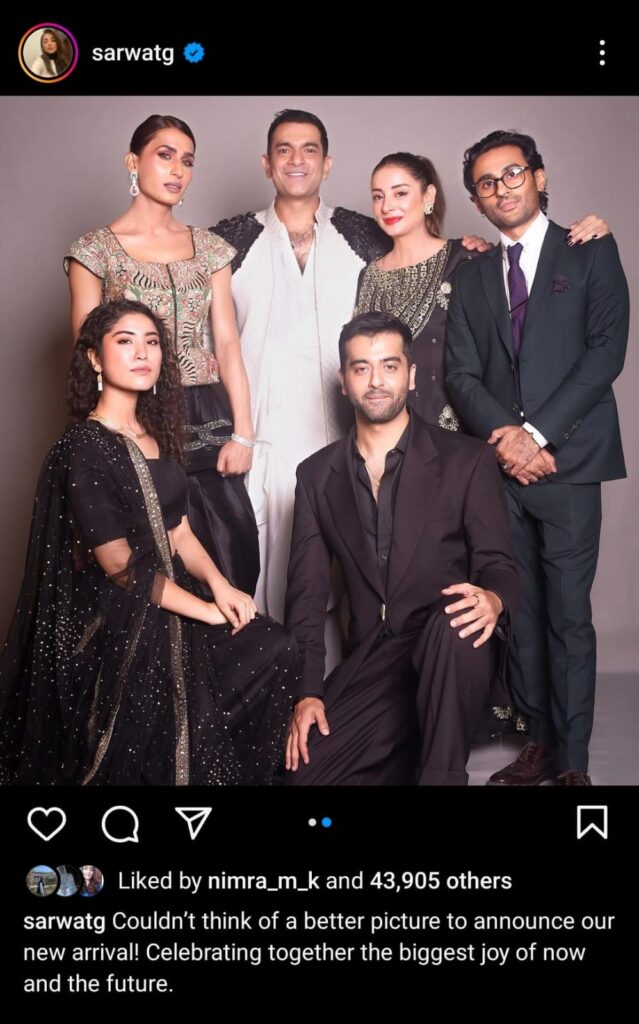Pakistani actress Sarwat Gilani and her husband Fahad Mirza welcomed their third child, a baby girl, into their family on a Wednesday.
The announcement of the new addition was made by the Joyland star on her official Instagram account.

The actress had previously revealed her third pregnancy through a star-studded picture from the Lux Style Awards 2023, featuring Sarmad Khoosat, Sana Jafri, Ali Junejo, Alina Khan, and Saim Sadiq, all subtly hinting at her baby bump. The caption of the post expressed joy for the present and the future, celebrating the upcoming arrival.

Renowned for her portrayal of bold characters on both television and the silver screen, Sarwat Gilani is married to actor and plastic surgeon Fahad Mirza. The couple, who tied the knot in 2014, already have two children, Rohan Mirza and Araiz Muhammad Mirza, born in 2015 and 2017, respectively.
Throughout her career, the actor has received widespread recognition and acclaim for her roles in dramas like Khasara and Naulakha, as well as her contributions to films such as Jawani Phir Nahi Ani. Notably, she was nominated for the 2015 Lux Style Awards in the Best Supporting Actress category for her role in Jawani Phir Nahi Ani.
Fans have showered congratulations on the Sila actor for embracing the joy of motherhood once again.
NY Times Takes On OpenAI And Microsoft, Accusing Them Of Copyright Violations
Meanwhile, in a significant legal development, The New York Times has filed a lawsuit against OpenAI and Microsoft, alleging the unauthorized use of millions of the newspaper’s articles for training artificial intelligence technologies, particularly in the development of platforms like ChatGPT.
This legal action marks The Times as the first major U.S. media organization to take legal recourse against OpenAI and Microsoft for copyright issues. The newspaper contends that the defendants have exploited its journalistic content without permission or compensation, utilizing it to create AI products that serve as substitutes for The Times and potentially divert audiences away from the original source.










